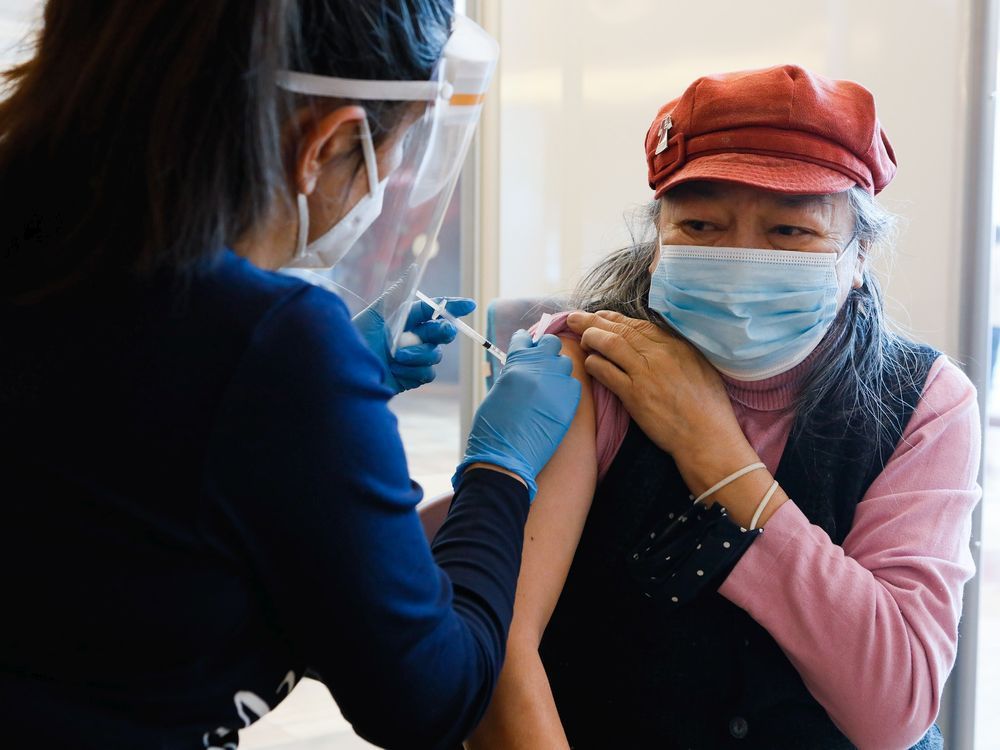while her booming online sexual wellness shop and magazine may seem like a departure from her activism and working on the front lines of addressing gender-based violence, “these are complementary things – fighting against violence and fighting for joy and pleasure,” katie aitken says.many of us still aren’t comfortable talking about sexual pleasure, and especially problems with desire or orgasm or the variety of ways we can experience sexual pleasure. sex education needs an upgrade to include learning to communicate about our sexuality, including consent, problems with sex, and sexual pleasure in all of its diverse expressions, says aitken, who lives on salt spring island, b.c.and now, as the social restrictions of covid-19 have stalled many sex lives, they’ve also sparked a sexual revolution for others by encouraging conversations about sex and pleasure.justin lehmiller, a social psychologist and research fellow at the kinsey institute at indiana university, recently published a seven-month
u.s. survey showing that almost half of respondents reported a decline in their sex lives during the pandemic.he also found that those who fared best were the one in five respondents who creatively adapted their sex lives, expanding their sexual repertoire by incorporating new activities, what he cautiously calls a covid-induced sexual revolution. “novelty seems to have a buffering effect in the sense that the people who were trying new things were doing better in their intimate lives,” he says. three times better, his survey showed.but the essential ingredient seen in those thriving sexually this year may not be the novelty itself, but how the pandemic has prompted increased communication about sex, lehmiller says. “when we get back to normal, that could really lay the groundwork for healthier and more satisfying relationships.”aitken hopes to support this revolution of embracing sexual pleasure and education in all of its diversity, even when we’re stuck at home. “it’s about knowing about pleasure, being able to have conversations about pleasure, and seeking it out,” she says.aitken and her toronto-based co-ceo, grace bennett, had just launched
bonjibon when covid-19 hit. while they were anxious about starting a new endeavour in a pandemic, “it became obvious that people were home and horny,” says bennett. now their biggest stress is trying to keep up with the demand. “choosing to value our bodies says that, actually, pleasure is good. this is doing good things for our body. it’s doing good things for our brains,” says aitken.“as i continued to study and become interested in feminism, i was really inspired by the movement to break down stigma and talk about pleasure and promote being able to seek it out in ethical ways.”aitken says they’ve seen a trend during the pandemic toward exploring sexual pleasure with more curiosity. “we live in a world where we’re told to do things in one way,” says aitken. their products and
online magazine explore the many ways to experience our sexuality, from talking to our partners about sex, to gender-affirming kits, and toys for self-pleasure and new kinds of sexual expression with partners.“we are so excited to be able to break down some of the stigma that we don’t even know we’ve inherited over time,” says aitken.another area of stigma is sexual fantasy. justin lehmiller recently released
tell me what you want: the science of sexual desire and how it can help you improve your sex life, a book based on his research on the sexual fantasies of 4,175 americans
. “people have a lot of shame around their sexual fantasies because they don’t know what is normal. that’s in part because we don’t talk about fantasy at all in most sex education. so more often than not, people tend to think that their fantasy is either weird or strange or unusual,” he says.lehmiller says that’s why he wrote his book — to help normalize people’s sexual fantasies and “show them that, odds are, the things they’re fantasizing about are the same things that other people are fantasizing about too.”by unburdening ourselves from this sexual shame, we can open the door to being able to talk about our fantasies with our partners and maybe even acting on some of them, lehmiller says. his survey showed that those people who shared and acted on their fantasies had the happiest and most sexually satisfying relationships.one common fantasy he found is consensual non-monogamy — 79 per cent of men and 62 per cent of women said they desired it, although only one in five said they’d acted on the desire. lehmiller’s studies on consensual non-monogamy show positive outcomes, with
each of the relationships strengthening the other.“a lot of people would assume that if you’re devoting less time to one relationship, that’s going to undermine the other, but we actually found the opposite: the more satisfied people are with the secondary partner, the more committed they are to their primary partner,” says lehmiller.while many people assume opening a relationship is inviting disaster, many large studies comparing monogamous to consensually non-monogamous relationships
find no difference in the stability or quality of the relationship, he says. “you probably know people who are in open or polyamorous relationships, but you don’t know how successful they are because it’s not something that is often talked about.”montreal psychologist laurie betito, who’s been a sex therapist for more than 30 years, broke barriers as the host of cjad 800’s radio show
passion, answering questions from her listeners about sex and pleasure for more than two decades.she started her show because “you only hear people who say, ‘i had the most amazing sex last night,’” betito says. “people are trying to measure themselves to these standards and yet there is no norm when it comes to sexuality. every couple creates their own norm because there’s such fluctuations in our sexuality throughout our lifespans …“people feel very much alone, and they just don’t feel normal and they don’t want to share it. and if they knew they were normal and that they don’t need to feel alone, maybe we’d be speaking about it more.”for example, psychiatrist rosemary basson, clinical professor of sexual medicine at the university of british columbia,
debunks the assumption that we all progress along the traditional linear model of the human sexual response – the straight line from desire to arousal, to plateau, then orgasm. instead, basson proposes a more complex, contextual and circular model.basson’s research shows that what we had previously perceived as “problems” are really just part of a normal spectrum of the sexual response. for example, desire can be spontaneous or responsive, coming before or after arousal. but in long-term relationships, especially in women, desire typically doesn’t just hit us like a lightning bolt but needs to be creatively and deliberately facilitated. “if you just wait around for it to happen, you may not have sex again, or very, very rarely,” says betito.it also needs to include all of the multitude of motivations we have for engaging in sex. beyond physical pleasure,
basson’s model includes desire for empowerment, intimacy and connection, stress relief, expressions of love, or pleasing or feeling desired by a partner.“at the beginning of the relationship,
something’s happening chemically that is making us feel lust and people want to maintain that, but we can’t,” says betito. “in long-term relationships, that dissipates after about six months to 18 months, and it’s replaced by another chemical, especially for women: higher levels of oxytocin leading to higher levels of bonding.”many people come to betito worried about having no spontaneous desire. she asks them, “when you have sex, how does it feel?” and they usually say it feels really good, she says. “that’s good news, because that just means we have to get you to that point,” she tells them. betito offers the analogy of exercise. it’s rare that anyone wants to exercise spontaneously, especially two people at the same time. however, we know we will feel good during or after, so we can talk ourselves into it.however, if clients are dealing with pain or conflict in their relationship, then they need help with that issue instead, she says. it’s hard to desire an activity that doesn’t feel safe, whether because of physical pain or emotional distress.we often think of problems with desire as not having a strong enough sexual accelerator, which can definitely be the case. but we also have
sexual brakes that come on when our body is telling us that it isn’t safe to have sex. this is why all the stressors of the pandemic, being a parent, struggling at work, the pressure that we “should” have more sex or anxiety about performance or body image all can turn our previously enjoyable sex life into something we push away. we’re not broken; the brakes are just on.in addition, three-quarters of women don’t regularly have an orgasm during intercourse with a man without clitoral stimulation, says betito. those who do are the ones lucky enough to have a
short distance between their clitoris and vagina, she says.many women (or their partners) worry that a lack of natural lubrication means they aren’t turned on. however, it’s common for women to feel sexually excited or aroused without having genital arousal, and vice versa.sex education historically teaches us only how not to get pregnant or a sexually transmitted infection, says betito, ignoring communication, consent and pleasure. learning to understand and communicate both consent and pleasure makes sex safer, lehmiller says. “if you don’t get any sex education, you’re not going to have the language to even have those conversations with a partner,” betito says.feeling safe to say no allows us to mean yes when we seek out and choose to engage in all the diverse and creative ways we can enjoy and celebrate our sexuality, aitken says.
joanna cheek is a psychiatrist in victoria and clinical assistant professor at the university of british columbia faculty of medicine. she is a current fellow in the dalla lana global journalism program.this story was originally published on healthy debate. find the original story here.
 7 minute read
7 minute read









